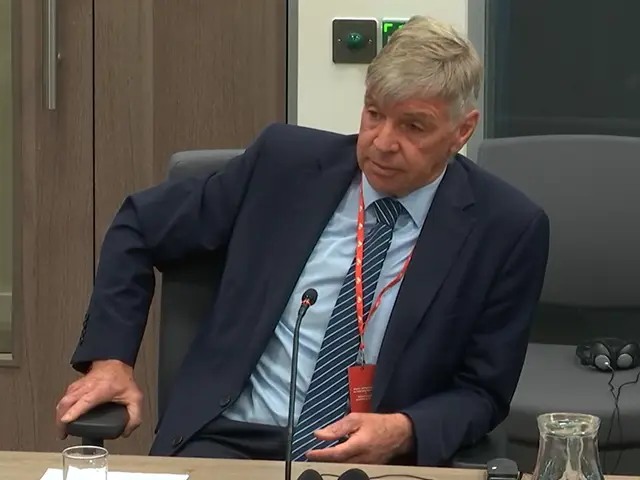THE FOOD processing industry in Wales is incredibly depressed about the future, with a fall in livestock numbers placing a question mark over its prospects, witnesses warned.
Nick Allen, chief executive of the British Meat Processors’ Association, told the Senedd’s rural affairs committee: “My members are incredibly concerned about the direction of travel.
“And it doesn’t just apply to Wales, [it’s] right across the whole country, but I think it’s particularly significant here: the decline in livestock numbers, the projections and, dare I say, the attitude and the desire… in the Welsh Government to actually drive a further reduction.”
Mr Allen said: “Big investors and employers in Wales are incredibly concerned about the future: more than concerned, I’d say incredibly depressed about what the future holds.”
He warned: “Unfortunately, it seems endemic within civil servants that they don’t really want to help industry and work with them. They seem to almost [act] as a police force to stop us doing things rather than thinking ‘this is what’s good for the country’.”
Mr Allen, who has been involved in discussions since the controversial sustainable farming scheme was paused by ministers, suggested the dial has barely moved in the months since. He described ministers’ approach to bluetongue disease as “another nail in the coffin”.
José Peralta, chief executive of Hybu Cig Cymru/Meat Promotion Wales, said livestock numbers have dropped significantly and will likely continue to fall.

Giving evidence on June 2, he warned: “That poses a big question mark about how do we carry on in the future with an industry that remains competitive.”
Kepak, a family owned business which runs a beef and lamb processing site in Merthyr Tydfil, employing 1,000 people, raised urgent and grave concerns about livestock numbers.
In its written evidence, the company said: “The efficiency and viability of our operations and the jobs that we provide rely on a critical mass of livestock.”
Asked about the Welsh Government’s 2021 vision for the industry, Mr Peralta said: “It’s a set of very nice and good aims but I struggle to see sometimes what’s underneath that’s going to drive all the different elements to get to that final aim.”
Raising the example of Ireland, he added: “They have conviction, they have ambition and they put money behind it. And those are the three things… we would have to change.”
Andrew RT Davies, who chairs the rural affairs committee which is holding an inquiry on food processing, questioned whether Wales is “chasing a hare we will never catch” amid falls in livestock numbers and a dramatic decline in abattoirs.

The Tory asked: “Or are we just managing the decline of the livestock sector here in Wales?”
John Thorley, chairman of the Association of Independent Meat Suppliers, warned changes introduced by the Welsh Government have reduced farmers’ confidence.
“That is, I believe, underlying everything,” he said.
Mr Allen told the committee: “I don’t know whether it’s accidental or deliberate but it feels as though we’re just managing decline. I find it really frustrating.”
Warning many schemes aimed at helping farmers are “totally contrary to what you ought to be doing”, he stressed that Wales has one of the best climates for livestock in the world.
He said: “It seems as though we’re just managing decline and wanting to get rid of it.
“And for what? To my mind, to be brutal about it, it’s a form of nimbyism [not in my back yard]: you’re going to head towards a net zero in Wales, wonderful – but you’re going to be importing a load of meat from the rest of the world.”
Rhun ap Iorwerth, who represents Ynys Môn which has lost two large slaughterhouses, asked whether the abattoir network should be a critical part of national infrastructure.

Mr Allen agreed with the Plaid Cymru leader’s suggestion, saying: “What’s the point in farmers producing livestock if you haven’t got the processing sector?”
Mr Peralta, who runs an abattoir on Anglesey and previously closed another, said: “That was for a single reason, not enough livestock… that is the fundamental issue.
“When you look at it, Wales slaughtered two-and-a-half million sheep last year – compare that to three million just in Anglesey eight-nine-10 years ago.”
Mr Thorley said: “We need more abattoirs. But we also need controls which are appropriate. The controls… at the moment are over the top, far too expensive and don’t actually deliver.”

He added: “I look at it sometimes and I get—disgusted is the wrong word but I find myself feeling ‘what the hell is going on?’. We wanted there to be a government in Wales – it could do such a lot but I don’t see it, I don’t see the evidence.”















